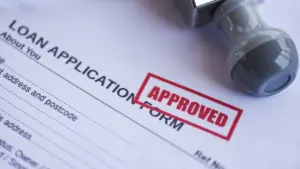Waiting on a personal injury case can strain anyone’s budget, as rent, childcare, copays, and missed work don’t pause just because a claim is pending. There’s no telling how long a lawsuit can take to settle, and many plaintiffs find themselves struggling to make ends meet while waiting for a settlement to be reached. That’s why some injured people consider getting a lawsuit settlement loan to hold them over until their cases is settled.
But what exactly is a lawsuit settlement loan, and how does it work? In this article, we’ll take a closer look at the pros and cons, common uses and how these loans are regulated.
What is a Lawsuit Settlement Loan?

A lawsuit settlement loan, or pre-settlement funding, is a type of loan that is designed to provide financial support to clients who are awaiting the outcome of a lawsuit. You repay only from the settlement or verdict—if there’s no recovery, you generally owe nothing and that “non-recourse” feature is the key difference from a traditional loan. Although this type of funding can be a lifesaver for plaintiffs who may need money quickly, there are some potential drawbacks. For how settlements are negotiated, see our quick explainer on how lawyers negotiate settlements.
How Does a Lawsuit Settlement Loan Work?
The process of obtaining a lawsuit settlement loan is pretty straightforward. First, the plaintiff contacts a lawsuit settlement loan provider, or pre-settlement loan provider, to apply for the loan. The provider will then run a risk assessment, which entails reviewing the details of the lawsuit and without applying a formal credit check, the lender will focus more on the estimated amount of the settlement and the likelihood of the plaintiff winning the case.
If the loan provider determines that the plaintiff has a strong case, they will offer a loan for a percentage of the expected settlement amount (usually between 10 and 20% of your case’s value). Once the loan is approved, the plaintiff will receive the funds, which can then be used for personal expenses, medical bills, or legal fees until the lawsuit is settled.
Common Uses of Lawsuit Loans
One of the main reasons plaintiffs seek out lawsuit loans is to cover medical expenses. With lawsuit loans, plaintiffs can quickly receive the funds needed to cover their outstanding medical bills and focus on recovery instead. In addition to medical expenses, many plaintiffs use lawsuit loans to maintain their day-to-day living expenses. This includes paying for necessities such as food, rent and utilities without dipping into their savings or checking account.
Also, hiring a reputable lawyer can be expensive and paying hourly can strain the client financially. As a result, some plaintiffs find themselves applying for lawsuit settlement loans just to simply pay for legal fees. Keep in mind, this may not apply to most personal injury lawsuits due to a majority of attorneys working on contingency fees.
Pros and Cons of Lawsuit Loans
Like most loans, lawsuit settlement loans have both advantages and disadvantages. It’s important to weigh the pros and cons before deciding if this type of loan is right for you.
Pros:
- Quick and easy access to funds
- No credit check required
- No need to make payments until your case is settled
- The funds can be used for a wide variety of expenses
Cons:
- High Interest Rates, depending on lender
- Fees and charges that can add up
- Not federally regulated
Are Lawsuit Settlement Loans Unregulated?
Lawsuit lending regulation varies across the U.S, with most states lacking regulation. Texas for instance, has zero regulation due to the state popularizing contingency fees for legal representation in the United States, which in turn makes it easy to obtain a lawsuit loan. While California allows most lawsuit loans but the state restricts funding for workers compensation cases. This is because in these cases, a lender cannot secure their lien against the attorney’s trust account.
Colorado on the other hand, has heavy regulation on the legal lending industry. They consider lawsuit loans to be traditional lending, therefore making lenders subject to traditional lender laws. Despite its popularity, lawsuit lending is still an unregulated market, which means that there are no standard guidelines for these types of loans. So pay close attention to those proposed interest rates.
Contact West Coast Trial Lawyers for a Free Consultation
Lawsuit settlement loans can provide much-needed financial support to plaintiffs who are waiting for a settlement to be reached in their lawsuit. However, it’s important to carefully consider the terms of the loan and the risks involved before applying for this type of financing. It’s important to understand exactly what is a lawsuit settlement loan and how it works before you apply.
If you’re thinking about obtaining a lawsuit settlement loan it’s a good idea to speak with one of our experienced legal professionals at West Coast Trial Lawyers to ensure that you are making an informed decision.
Call (213) 927-3700 or send a message for a free, confidential consultation with an attorney and they will look at your numbers, your medical plan, and your deadlines, then decide a smart path together.
FAQ About Lawsuit Settlement Loans
Q: What is a lawsuit settlement loan used for?
A: Lawsuit settlement loans are used to provide financial support to plaintiffs who are waiting for a lawsuit to be resolved. The funds can be used for a variety of expenses, including living expenses, medical bills and other costs associated with the lawsuit.
Q: How much can I borrow with a lawsuit settlement loan?
A: The amount you can borrow with a lawsuit settlement loan depends on the expected amount of the settlement and the strength of your case. Lenders will typically offer a loan for a percentage of the total estimated settlement. This usually ranges from 10-20%
Q: Do I have to make payments on a lawsuit settlement loan?
A: No, you don’t have to make payments on a lawsuit settlement loan until your case is settled. The loan is repaid from the settlement amount once the case is resolved.
Q: Can I still receive a lawsuit settlement loan if I have bad credit?
A: Yes, lawsuit settlement loans do not require a credit check, so your credit history will not impact your eligibility for this type of financing
Q: Are lawsuit loans worth it?
A: Sometimes—but only when the numbers make sense after we model your net recovery. We’ll compare funding vs. alternatives so you’re not surprised at the end.
Q: What’s the typical interest rate on a lawsuit loan?
A: Ranges will vary, but many funders quote 2%–4% per month, while others cite broader ranges (effective annual costs can be high). Ask for a payoff schedule in writing and here are questions to ask a lawyer when you’re evaluating an offer.
Q: Are personal injury settlements taxable?
A: In general, compensatory damages for physical injuries are not taxable under IRC §104, though punitive damages and post-judgment interest are taxable. A loan/advance itself isn’t income. Always confirm with a tax professional. For California-specific treatment, see our guide: Are lawsuit settlements taxable in California?














































































